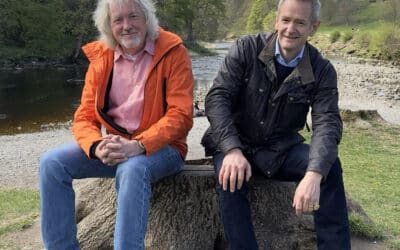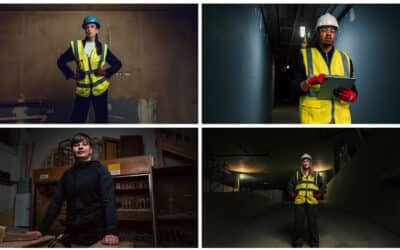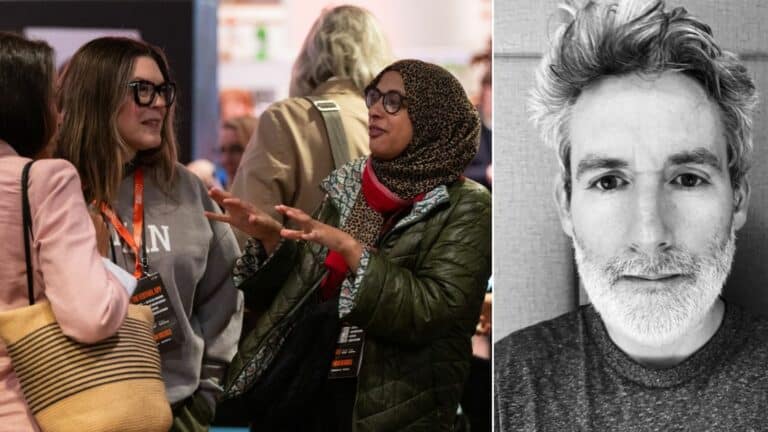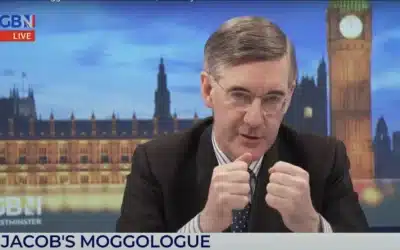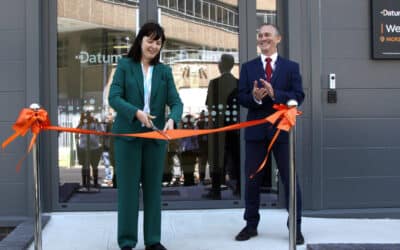The Edinburgh TV Festival is heading to Salford’s MediaCity this week for a one-off anniversary event spotlighting the creative power of the North and the urgent need to tackle class inequality in the screen industries.
Taking place on Thursday, May 15, An Evening with the Edinburgh TV Festival forms part of the festival’s 50th anniversary celebrations. Hosted in collaboration with the University of Salford, the event reflects the growing importance of Greater Manchester in shaping the future of UK broadcasting.
Ahead of the event, Festival CEO Campbell Glynnie told Prolific North about MediaCity’s role in driving inclusive growth, why the University of Salford is a model for academic-industry collaboration, and how the sector must get better at talking – and acting – on class if it wants to thrive.
Why have you chosen MediaCity as the location for this special Edinburgh TV Festival event?
I was lucky enough to visit MediaCity back in 2008, when it was still a building site, so I’ve had the unique perspective of watching it grow from the very beginning.
During my time with the Festival, it’s become the place I visit most often to gain fresh perspectives on the rapid changes shaping our industry as there’s such an incredible concentration of talent within a short distance of MediaCity. I don’t want to get myself into trouble – and I know there’s some debate over who actually said it – but the spirit behind Tony Wilson’s quote, “we do things differently here,” really does capture the essence of how we work, so it was a natural choice.
Can you expand on your partnership with the University of Salford?
The University of Salford was one of our first university partnerships starting back in 2014 and we’ve seen that partnership evolve organically since then. The reason it has lasted so long is because both organisations have one eye on the future and we’re always talking about how we can get the best out of each other.
That approach extends to the student experience – we only work with higher education institutions who futureproof their graduates’ careers and get them ready for the rewarding, but tough process of entering the industry. We have seen so many great Salford students go through our programme The Network* to great success, and we know it’s a pipeline we can rely on and recommend to industry. It’s a genuine two-way relationship, and one that shows how academic institutions can play a central role in the future of our industry.
*The Network is our free entry-level access programme open to anyone aged 18+ with all educational backgrounds. This scheme offers money-can’t-buy opportunities in Edinburgh and ongoing support to help kick-start a career in TV.
Social mobility is a key theme of the TV Foundation’s new report, Let’s Talk About Class. What needs to happen to improve class representation in TV?
If we can’t talk about it, we can’t measure it and if we can’t measure it, we can’t fix it. It’s as simple as that. We need to put egos aside, take a deep breath and examine the extent of the challenge. It’s also important not to make it become an us vs. them debate because that’s not it at all, it’s about making space to talk about class and understand differences, regardless of your background and we would love to hear from companies who have found a way to create spaces for these kinds of conversations.
Gemma Bradshaw, our Impact Director, has ensured we’ve put intersectionality at the core of this work and has achieved so much since we launched the Impact Unit last August. Businesses in MediaCity and beyond in Greater Manchester can lead the way by embedding social mobility into commissioning, training and hiring strategies, and it could serve as a pan-organisational national model for inclusive growth.
What role can MediaCity play in delivering on these ambitions?
One of the things we’re here to do is make sure we’re having these powerful conversations in person nationwide. We’re hoping the placemaking abilities of MediaCity can shine some specific light on factors such as work-life balance, community and shared opportunities.
MediaCity has already proven it can bring together broadcasters, indies, academia and tech. The next step is building those bridges into less traditional talent pools, ensuring that the pathways into the industry are clear, supported, and affordable. That’s where real systemic change can happen.
How should the UK industry tell its story—regionally, nationally and globally—in the years ahead?
We need to reclaim our story as TV as a public good, not just an entertainment industry. I think there’s often a tendency to view the UK as a secondary market to the US—which, in itself, is no small achievement. But that perspective overlooks what makes the UK’s creative community so exceptional, and why we continue to compete so successfully on the global stage.
The industry isn’t perfect—we wouldn’t have launched the Impact Unit if it were—but we must look closely at the DNA of what makes UK-originated shows so distinctive and how we’ve built that success. If we start dismantling the pipelines that support talent development, or treat creativity as a risk rather than an opportunity, we are in danger of losing the very qualities that set us apart. And once those foundations are lost, they can’t be easily rebuilt. As we navigate increasing competition and rapid technological change, we mustn’t forget what makes us different in the first place. MediaCity, and Greater Manchester more widely, is central to that challenge. We’re excited to build deeper ties, ask bigger questions, and ensure the the TV Festival and the TV Foundation serves the entire industry, not just a corner of it.

